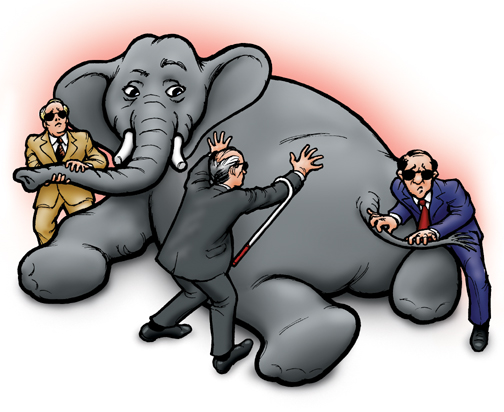
Here’s how Philosophers take the idea of truth out for a walk in the real world.
Given time, and diligence, people searching for the truth about the device that you're reading this on would converge on certain common sets of facts: its height and weight, the material its made out of, and its shape. We can have an intelligent conversation about it only if we can at least agree on these facts. You can pretty reliably plan on it being able to work in the way you want it to, And that most times you go to use it, you can be sure that it will work.
But that’s the ideal case. What about the classic tale of the blind men and the elephant? They compare what they feel and cannot agree what it is.
It is notable that the moral of this story is not relativism about the truth, since despite the plurality of perspectives and theories of what an elephant is, there is a real elephant, and that elephant is a certain way independent of the blind men’s theories. The trick for a scientific community of investigators is to develop a theory that can account for all of the relevant perspectives, and unify them into a single account of what an elephant is, justifiable by evidence.
.
 "A lie gets halfway around the world before the truth has a chance to put its pants on."
"A lie gets halfway around the world before the truth has a chance to put its pants on."
... is a quote usually attributed to Winston Churchill that we like to use in class to frame the idea of the truth. Given what we now know about the way technologies like the press, the telegram, TV and the Internet have accelerated the spread of news and information…what did Churchill mean?
.
.
Is there such a thing as...
Truthiness?
On the October 17, 2005 pilot episode of The Colbert Report, he coined the word that would become Merriam Webster’s 2006 Word of the year.
..
